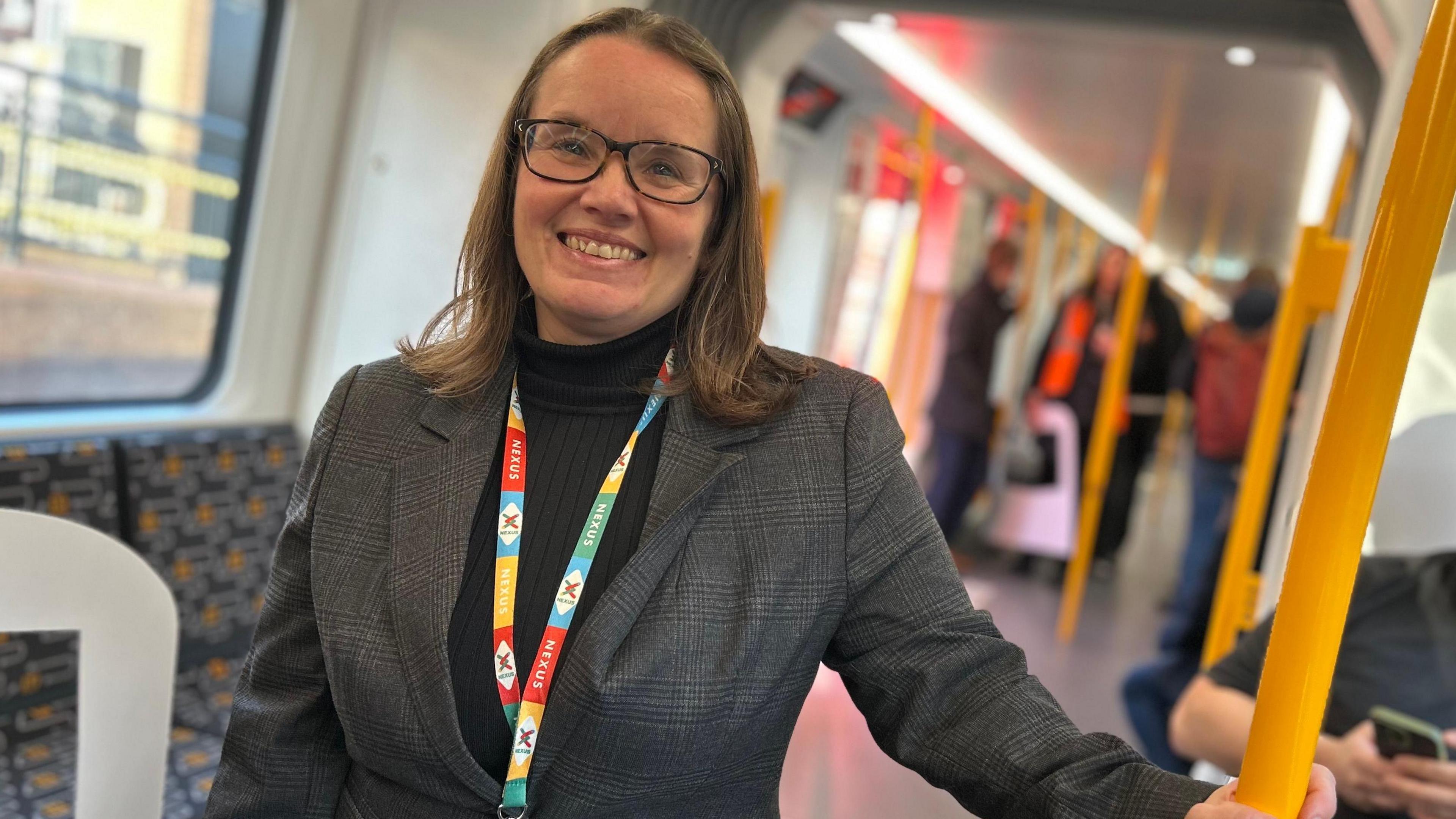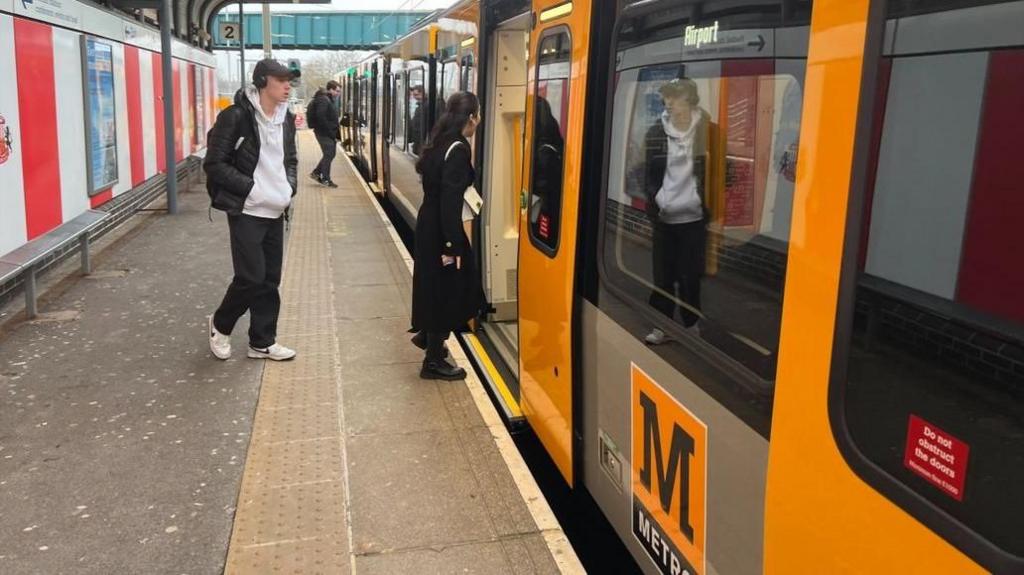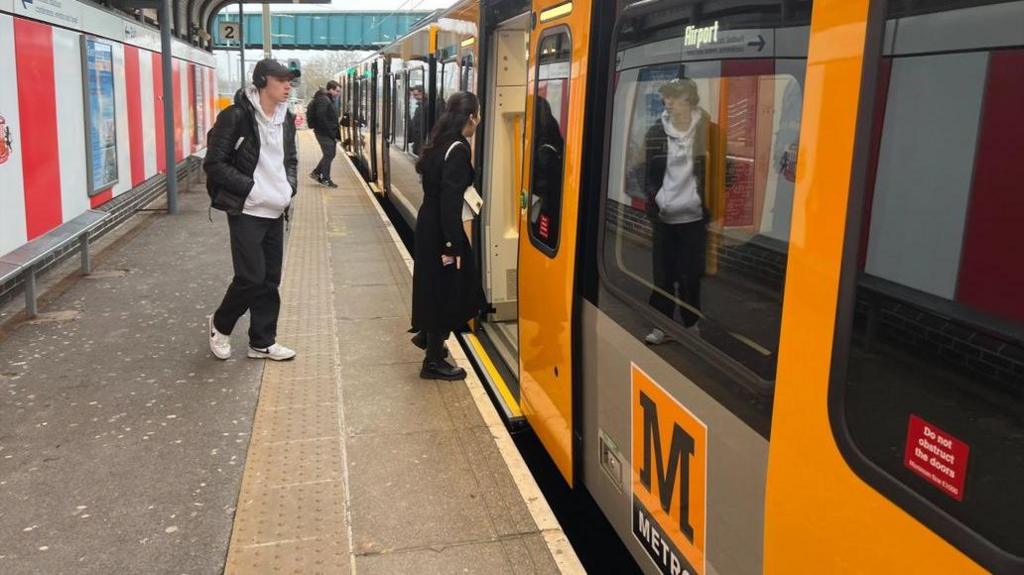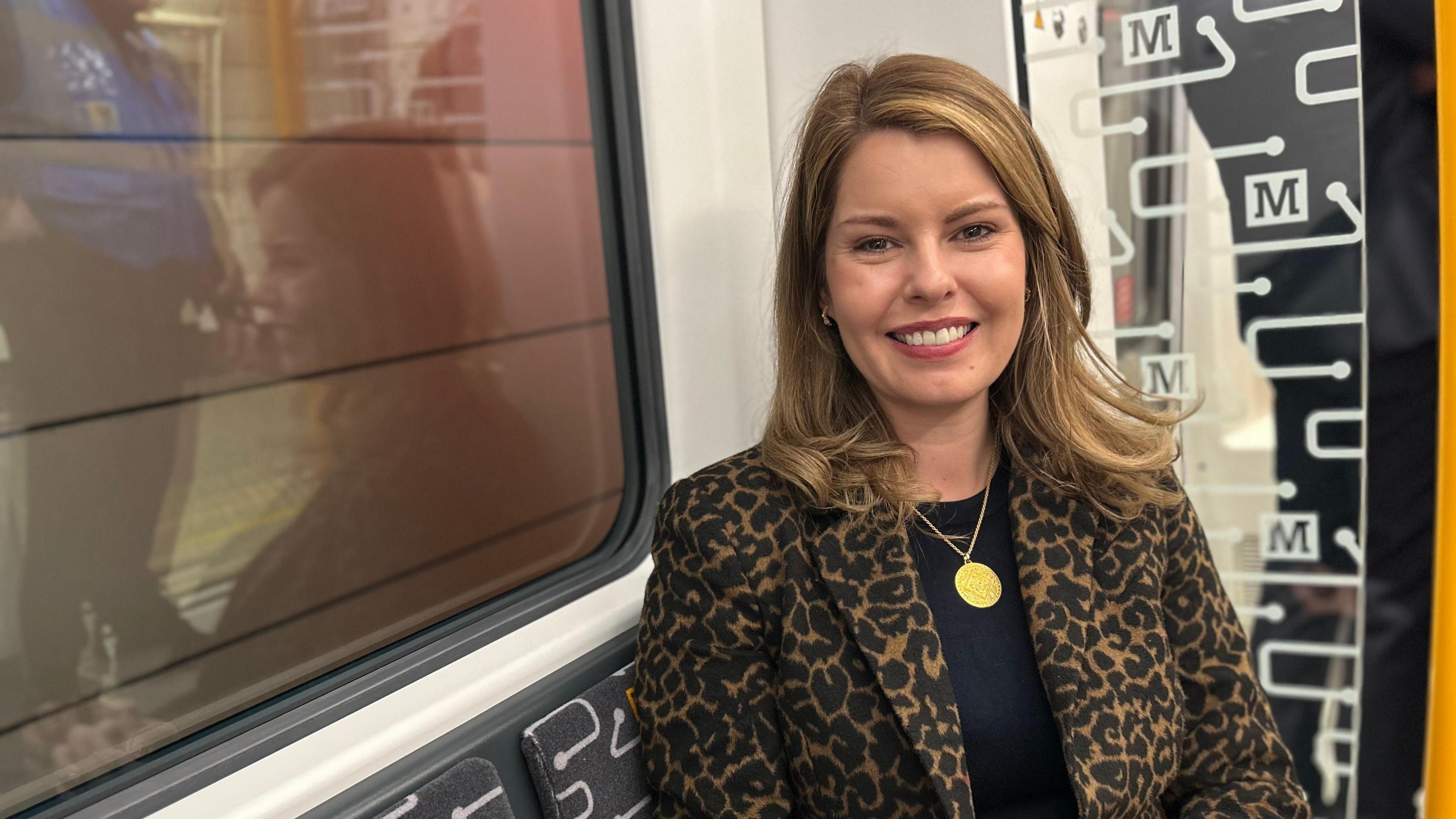Metro fare hikes hinted amid £5m deficit

Cathy Massarella says Nexus has developed a growth strategy
- Published
Metro fare hikes could be needed to plug a £5m deficit, a transport boss has hinted.
Councillors have been warned the Tyne and Wear Metro is facing a multimillion-pound shortfall that means its services will become "unsustainable" without action to boost income.
Cathy Massarella, managing director of Metro operator Nexus, said bosses would need to "maximise" revenue from ticket fares and other sources.
Nexus said 2026 fare proposals were still being developed.
The Metro is currently in the process of rolling out a £362m new fleet of Swiss-built trains, which is due to be fully in service by the end of 2026.
Funding has also been secured this year for a proposed extension of the network to Washington and for an urgently needed replacement of its signalling system.
But Ms Massarella told a Newcastle City Council meeting last week that Nexus's financial position was "difficult".

Metro fares last increased in July
"The combined challenges of the last five years have resulted in a financial structural deficit of over £5m," she said.
"While we have a plan to maintain services in the short term, this is not sustainable over the medium and long term."
Ms Massarella said Nexus had developed a growth strategy, alongside controlling costs and improving agility and effectiveness.
"International benchmarking demonstrates that Nexus has one of the lowest operational costs per train hour out of 40 Metros operating across the world and we want to build on this, with a continuous improvement focus and a commercial intent to maximise fare and non-fare revenue, whilst increasing patronage," she added.
'Challenging' position
Metro and Shields Ferry fares last went up in July. The rise stood at 4.6% on average, meaning a single journey now costs up to £4.70, the Local Democracy Reporting Service said.
Nexus commercial director Helen Mathews said the operator's funding position remained "challenging".
"To help address this, we have developed a Plan for Growth to help us generate additional revenue that includes a range of non-fare related commercial opportunities," she said.
"We are still working on the Metro and Shields Ferry fare proposals for 2026.
"We aim to set a balanced package of fares while helping us to meet our running costs and support the essential services that we deliver."
Ms Matthews added final fare proposals would be made public and go to the North East Combined Authority's Cabinet to be agreed.
Follow BBC North East on X, external, Facebook, external, Nextdoor and Instagram, external.
Get in touch
Do you have a story suggestion for BBC North East & Cumbria?
- Published27 June

- Published28 January
